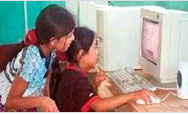Overview

El Salvador’s per capita GDP of $2,660 and improved health statistics reflect progress since the 1992 Peace Accords. These demonstrate the country’s social and economic resiliency in the face of serious challenges, including two recent natural disasters—a volcanic eruption and severe flooding—that caused widespread devastation. Despite these issues, the country’s economy continues to grow at a steady rate, even exceeding expectations. Contributing factors include an increase in coffee, sugar and non-traditional exports, an increase in family remittances, new investments in services and an increase in tourism income. Further, in November 2006, El Salvador signed with the Millennium Challenge Corporation (MCC) a five-year $461 million anti-poverty compact that seeks to stimulate economic growth and reduce poverty in the country’s northern region, where more than 53% of the population live below the poverty line.
Despite these gains, El Salvador continues to face daunting development challenges. These range from high levels of rural poverty, to vulnerability to natural disasters, to an economy that falls short of providing enough good jobs to keep the population gainfully employed. There is a broad consensus across Salvadoran society that another critical challenge is one of reducing political polarization. In the past year, homicides have increased with a large percentage attributable to gangs.
USAID programs in El Salvador endeavor to create economic opportunities, promote a more transparent and efficient judiciary, support government accountability and improve quality and access to basic healthcare and education. USAID also plans to support the Government of El Salvador’s (GOES) efforts in combating gangs through social investment and job growth.
Programs
Governing Justly and Democratically
USAID’s democracy programs help restore the rule of law and citizen confidence in the justice system and state institutions in El Salvador. USAID will support passage and implementation of reforms to improve the criminal justice system and stimulate more effective community partnerships with business and governments to prevent crime and offer alternatives to gangs for youth. The program will also help increase the use of alternative dispute resolution mechanisms to reduce congestion in the formal judicial system. Government ethics and anti-corruption programs also promote greater transparency, accountability and more responsive governance within the country.
Investing In People
Health and education programs focus on improving maternal, child and infant health through expanded outreach to poor areas. In addition, education programs strengthen teacher training, assist with materials development and focus on improved student academic achievement. These goals are being achieved by assisting the GOES to increase social sector investment and transparency and expand access to and improve the quality of child and reproductive health services and the quality, equity and efficiency of basic education in poor underserved areas. USAID’s program also works to reduce HIV transmission among high-risk groups by promoting behavior change.
Economic Growth
USAID will work with the GOES and the private sector to help increase trade, support job creation and promote economic opportunities for small and medium businesses as well as a successful implementation of the Central America-Dominican Republic (CAFTA-DR) Free Trade Agreement.
The program will help address laws and policies that promote trade and investment, such as sound fiscal policy needed to increase government revenues for health and education investment. These policies will help the GOES and private sector to take full advantage of CAFTA-DR benefits. Trade capacity building activities will increase productivity and efficiency of small and medium enterprises. In addition, USAID’s program will strengthen Salvadoran capacity to manage and conserve two watersheds, protect biodiversity in and around protected areas, and enhance the ability of households living in key watersheds to diversify their incomes. |


